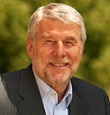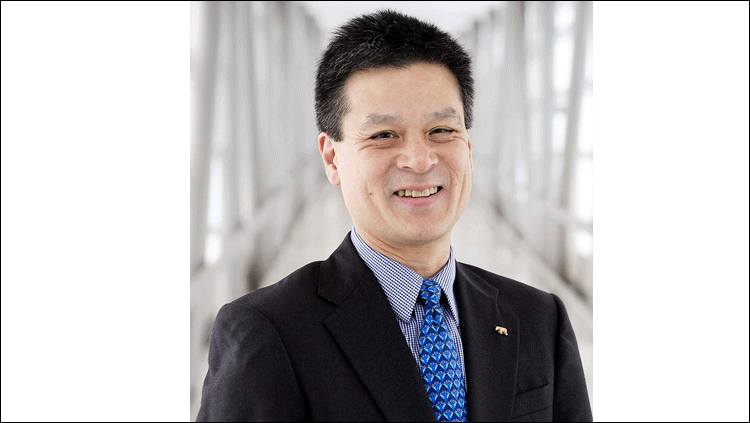Message From the President: Global Connections

Barry Everitt
As 2020 drew to an end and as the New Year begins, my first thoughts are with those of you who have been directly affected by coronavirus: some of you have been ill, or have had to care for sick relatives and friends, or have suffered bereavement, or have faced the challenge of trying to work from home while caring for children or parents. My thoughts are also with those of you who struggled with the complexities of social isolation and anxiety as we continue to live through difficult and sometimes frightening times. As I write to you now, a new seemingly more infectious strain of the virus leaves the UK more or less cut off from the world. And yet, there are glimmers of hope as the world races to get effective vaccine inoculation programs in place – an endeavor that will likely take much of the first half of the year.
“My thoughts are also with those of you who struggled with the complexities of social isolation and anxiety as we continue to live through difficult and sometimes frightening times.”So, it is with optimism that SfN welcomes the New Year, looking forward to the all-digital SfN Global Connectome: A Virtual Event taking place January 11–13. In response to the cancellation of Neuroscience 2020, the Program Committee, led by Sheena Josselyn, successfully took on the huge challenge of brainstorming this new event format. Rather than try to fit the five-day program of the annual meeting into a virtual setting, they envisioned a smaller event and new session formats that respect the experience remote gatherings offer.
For example, traditional lectures such as Plenary sessions are structured more as interviews. Global Connectome’s six plenary speakers, Farah Lubin, Maruo Costa-Mattioli, Bong-Kiun Kaang, Leslie Vosshall, Irene Tracey, and Zayd Khaliq, will each be joined by neuroscientists in their fields who are earlier in their careers and who will act as interviewers. They will ask the plenary speakers their own questions and facilitate those from the audience, with the goal of creating a conversation that is engaging for remote attendees.
One of the most difficult aspects of an SfN annual meeting is deciding which sessions and abstracts to see. The all-digital Global Connectome solves that problem by recording everything, so anything missed live is available later. For example, the 2,400 abstracts presented during the meeting are all available for one month after the Connectome ends and all sessions will be available on demand for three months. A special effort has gone into making the all-important poster sessions a success and I do encourage everyone to take the time to peruse poster abstracts and, most of all, to schedule visits to the live discussions at poster presenters’ stand-by times. Personally, I really appreciate the opportunity to immerse myself in Connectome content in the weeks to come.
“The all-digital Global Connectome solves that problem by recording everything, so anything missed live is available later.”The early spring brings SfN’s first virtual Hill Day. Normally an event that requires NeuroAdvocates to travel to Washington, D.C., to speak to policymakers, this year’s remote format enables many more SfN members to participate than in years past. In addition to the current class of Early Career Policy Ambassadors joining the event, the past two classes have been invited to build upon their existing relationships with their representatives. Members of SfN’s committees and leadership will also be participating to communicate the importance of robust and reliable funding of NIH and NSF, as well as the necessity of animal models and basic research in discoveries related to the human condition. Altogether, the number of NeuroAdvocates participating in Hill Day 2021 will be roughly double that of previous years, potentially doubling the impact of their message. I encourage all SfN members to contact their policymakers on social media to share their research and its reliance on government funding.
Brain Awareness Week (BAW), March 15–21, will also be virtual this year. SfN, the Dana Foundation, and many others have learned from the rapid shift to remote events last spring to bring new and engaging activities to their distant audiences. SfN chapters are beginning to plan their BAW events now, so do find your local chapter and share your enthusiasm for neuroscience. With any luck, the world will be in a place to allow a return to in-person outreach for BAW in 2022.
“I very much hope that we will find ways in which we can emerge stronger from the crisis and re-establish our programs of neuroscience research to which we are so dedicated.”As we look back on 2020, I hope that we are able not only to think of it in its awfulness and strangeness, but also to appreciate that the challenges we’ve faced have brought out the best in us. Fortunately, the approval and distribution of multiple SARS-CoV-2 vaccines will begin to change the landscape and provide optimism that the worst impact of the COVID-19 pandemic will gradually subside. As individuals, I think we all look forward to a return to a more normal way of life. I very much hope that we will find ways in which we can emerge stronger from the crisis and re-establish our programs of neuroscience research to which we are so dedicated. I wish you all a Happy New Year!






















